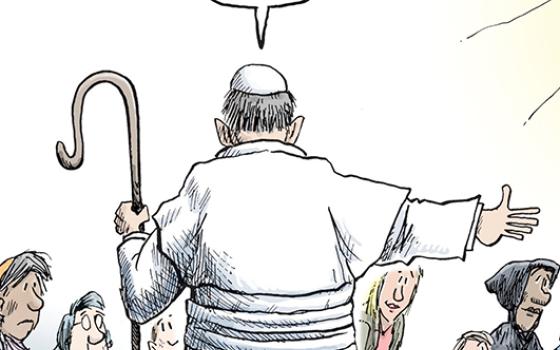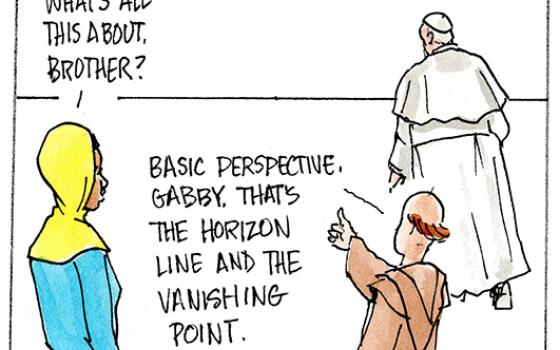Why has evolution, of all things, become a hot topic in this year’s presidential race? It is an interesting question. After all, very little a president does has to do with the teaching of evolution. But, because evangelical Christians have become the base of the GOP today, the issue matters greatly.
First, Texas Gov. Rick Perry said, incorrectly, that in Texas both creationism and evolution are taught in the schools. Of course, in the religious schools, creationism is taught and in the public schools evolution is taught. But, repeated court rulings prohibit the teaching of creationism in the public schools because it is a religious belief.
Then, former Utah Governor Jon Hunstman said that if the GOP becomes an anti-science party, they are finished. (Presumably, he did not mean that they are eschatologically finished, just politically.) Alas, there is a variety of intellectual dogmatism surrounding the claims of science, too, as seen in the debates about conscience protections in health care law: Some liberals think that if you can provide scientific evidence that a given procedure is doable, then it should be permitted, but science can never tell us what should be done, only what can be done.
For Perry, the need to give a shout out to creationism holds great rewards and very little risk. Yes, it is true, that if this man really believes God planted dinosaur fossils in the earth to test our faith, we should all entertain questions about his judgment. But, not only do many GOP voters agree with him in holding to this preposterous belief, they are deeply invested in it. Many evangelical Christians pay a pretty penny to send their children to private, religious schools so that they will not be contaminated by secular humanism of the kind that supports evolution. A candidate who questions creationism is questioning those parents’ decisions about how to educate their children. Evolution really matters to them even if the rest of us do not give it a second thought.
And, what is the downside? Perry needs to win the nomination. You can’t get the nomination by alienating the base of the party, those motivated voters who are most likely to show up on a cold Iowa night to participate in the caucus. And, the nomination prize is looking more desirable with every jobs report. If unemployment remains above 8 percent, President Obama is vulnerable. And, if a man like Perry can present a reasonable plan for creating jobs, people will not care one whit whether he believes that fossils are a divine trick.
Why has Huntsman decided to defend science, and to do so without so much as a nod to creationists? There is some speculation that he has already set his eyes on 2016 and the hope that by nominating someone whose views are so outside the mainstream in 2012, the GOP will be looking for someone committed to moderation and civility the next time round. We’ll see. There is something about Barack Obama that makes conservatives nuts, just as there was something about George W. Bush that made liberals nuts, and in both cases it has to do with more than policy. There was something in Bush’s swagger than unnerved liberals. There is something in Obama’s professorial detachment the puts conservatives over the edge. I do not see the GOP embracing moderation for some time.
The more interesting question about evolution, of course, has nothing to do with politics. It has to do with the impoverishment of the evangelical imagination. There is not a single precept of the Creed, nor a sentence of Scripture, that is threatened by any scientific conclusions, least of all by evolution. (At a practical level, the Church’s natural law tradition is much less useful as a point of departure for public discourse since Darwin taught us that there is randomness in nature.) Evolution teaches the how of creation, not the why. Does it matter, theologically, how God infused the human person with a conscience? Does it matter if it was done through natural processes taking millions of years or done in six days?
On the other hand, the existence of the human conscience shows the limits of science. We may be biologically driven to propagate the species, to adapt to behaviors that strengthen our chances at survival, but my conscience can dictate that I do things that have no beneficial effect on the species and that do nothing to advance my chances of survival. Only a creature endowed with conscience exercise the gift of altruism. My worship of my Creator may or may not be good for the species, but I worship my God because I believe such worship is required by my conscience. I believe the Creed is true, not that it is going to help propagate the species.
Whenever the Catholic Church does something stupid, I just consider the alternatives. Lord, to whom would we go? It is still a good question. If the crimped intellectual universe of the fundamentalist mind is the true expression of the self-revelation of Jesus Christ, we are in trouble. And, if the liberal confusion about science, investing it with normative qualities it cannot sustain on its own methods of inquiry, we are also in trouble. Thank God – and Darwin, I suppose – that as Catholic Christians we insist that faith and reason walk together and exercise judgment about the realities of the world, and not just the world of politics.




